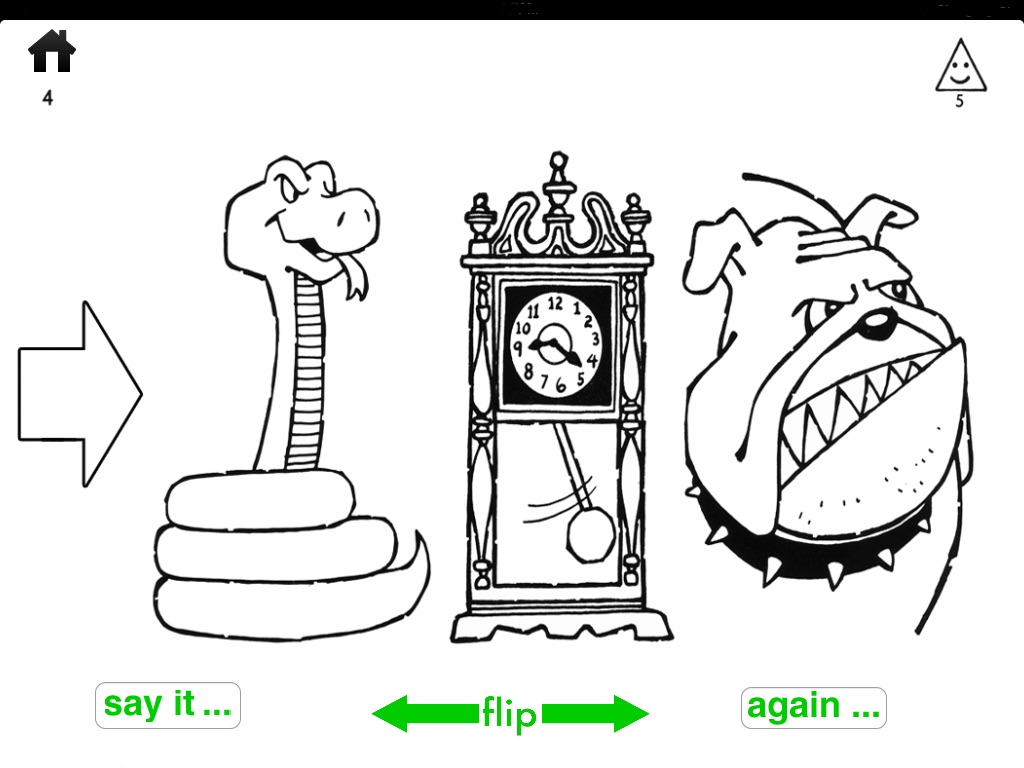
Center for Innovation in Education
Three-Sound Flipbook
Description
The third of the fourteen apps that comprise the Baratta-Lorton Reading Program.
The Reading Program is a reading and writing curriculum for beginning readers and any child who has already experienced difficulty in learning to read.
99% unique – 100% effective - 100% free
Background for the fourteen apps
The Baratta-Lorton Reading Program also known as Dekodiphukan (pronounced decode if you can) was developed by the Center for Innovation in Education whose many other offerings include Mathematics Their Way, the first non-traditional math curriculum adopted in by the State of California.
Dekodiphukan has been in use in classrooms across the United States and Canada since 1985. The Program has been used to teach thousands of children to read and to write regardless of background or supposed lack of reading readiness.
To date, no child using the program in a classroom setting has ever failed to learn to read or to write.
This Dekodiphukan reading and writing curriculum is now a series of fourteen apps plus a parent-guide for the iPad that, within a period of six months to a year (or occasionally a bit longer for some special needs children), will enable every child using it to read and to write. Reading with enjoyment. Writing creatively.
Dekodiphukan is a full fledged curriculum. It is a set of specific learning activities, not a set of games. The curriculum’s fourteen apps are all free with no ads - popup or otherwise - included. While the apps may be downloaded all at once and stored in a folder on the iPad, no more than two or three of the apps are used at any one time by the child.
Three-Sound Flipbook
The third the Fourteen Apps
Three purposes for the Flipbook
First, to allow the child to learn the sounds. Dekodiphukan introduces the sound images and provides the rationale for why each image represents the sound that it does. However, sounds are learned best in the context of words and not in isolation. The Flipbook allows the child to hear and learn the sounds in words.
Second, to allow the parent-teacher to model for the child the process of blending sounds into words. Audios are provided to assist the parent in learning the blending process and to permit the child to review the process on his or her own as often as he or she may wish.
Third, to insure the child has the vocabulary to proceed independently in the reading program. If the three sounds the child is blending form a word that he or she does not know, the child has little hope of knowing if his or her blending is correct. The child learns to blend sounds into words using only words that are a part of his or her vocabulary.
Three-Sound Flipbook
Used in parallel with the Two-Sound Flipbook
Teaches the child the sounds in the context of words
Models for the child the blending of sounds into words
Gives the child the necessary vocabulary for later activities



